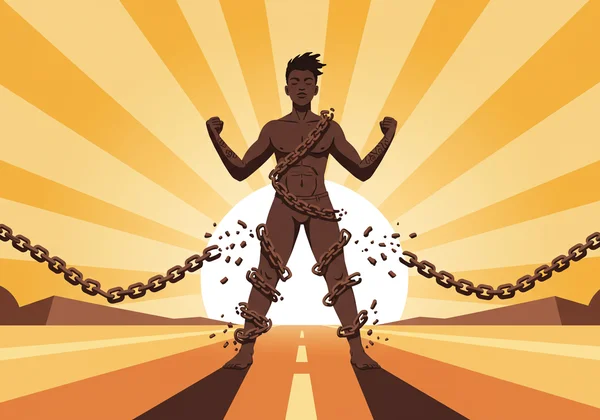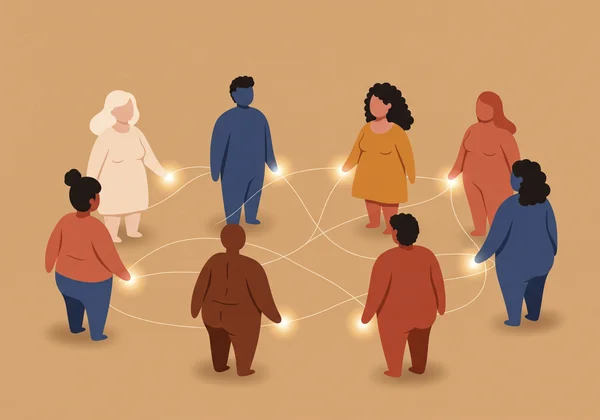Kink Shaming & BDSM Stigma: Cope, Build Resilience, & Take a Free BDSM Test
September 7, 2025 | By Leo Martinez
Feeling misunderstood, judged, or even isolated for your BDSM interests can be a heavy burden. The experience of kink shaming is a painful reality for many, creating a barrier to self-discovery and authentic expression. This guide will help demystify the stigma surrounding BDSM, explore its deep psychological impact, and offer you practical strategies to build resilience. How can you build resilience against judgment and embrace your true self in a world that doesn't always understand? The first step is knowledge, and the next is self-acceptance, a journey you can begin in a safe, judgment-free environment.

Understanding Kink Shaming & BDSM Stigma
Before we can build resilience, we must first understand what we are facing. BDSM stigma is rooted in misinformation and societal fear of the unknown. By breaking down these concepts, we can dismantle their power over us and begin to heal. This understanding empowers you on your journey.
What Exactly is Kink Shaming? Defining the Phenomenon
Kink shaming is the act of criticizing, mocking, or humiliating someone for their sexual interests, fantasies, or behaviors that fall outside of conventional norms. It can be overt, like a derogatory comment, or subtle, like a dismissive look. This judgment can come from partners, friends, society, or even from within ourselves as internalized shame. It invalidates a core part of a person's identity and creates an environment of fear.
The Hidden Impact: How Shame Affects Your BDSM Identity
The psychological impact of shame is profound. It can lead to anxiety, depression, and a fractured sense of self. When you are shamed for your desires, you may begin to believe they are wrong or dirty, which damages your self-esteem and your ability to form healthy relationships. This can make exploring your BDSM identity feel dangerous, preventing you from understanding your own needs, boundaries, and desires. It’s a heavy weight that no one should have to carry alone.
Common Misconceptions That Fuel Kink Stigma
Stigma thrives on myths. Many false ideas about BDSM persist, painting it as abusive, dangerous, or psychologically unhealthy. These misconceptions often conflate consensual power exchange with non-consensual violence, ignoring the foundational principles of communication, consent, and safety (like SSC: Safe, Sane, and Consensual). Educating ourselves and others is a powerful tool to combat this harmful narrative and promote a more accurate understanding of consensual BDSM practices.
Strategies for Overcoming Shame & Building Personal Resilience
Now that we have a clearer picture of the problem, let's focus on the solution: overcoming shame and cultivating a resilient mindset. This process is about reclaiming your narrative and empowering yourself to live authentically. It requires both internal work and finding external support systems.

Embracing Your Authentic Self: Cultivating Self-Acceptance
The journey to resilience begins within. Cultivating self-acceptance means acknowledging your desires without judgment. It involves understanding that your kinks are a valid part of who you are, not a flaw to be fixed. Practices like mindfulness can help you observe your feelings without being controlled by them. Self-education is also key; learning more about BDSM can normalize your interests and replace shame with curiosity and confidence. A great starting point is to explore your preferences privately with a tool like a free BDSM test.
Navigating External Judgment: Responding to Kink Shaming
You cannot control how others react, but you can control how you respond. When faced with kink shaming, remember that their judgment is a reflection of their own biases, not your worth. You have several options:
- Disengage: You don't owe anyone an explanation. It is perfectly acceptable to walk away from a conversation that is harmful.
- Set Boundaries: Clearly state that their comments are unwelcome and that you will not tolerate disrespect.
- Educate (If You Feel Safe): If you have the energy and the person is receptive, you can try to correct their misconceptions calmly and factually. Your safety and well-being should always come first.
Finding Your Tribe: Building a Non-Judgmental BDSM Community
You are not alone. One of the most effective ways to combat shame is to connect with like-minded people. Finding a non-judgmental BDSM community, whether online or in person, provides validation, support, and a sense of belonging. Sharing experiences with others who understand can dissolve feelings of isolation and reinforce that your interests are normal and shared. This supportive network becomes a sanctuary where you can be your authentic self without fear.

Fostering Kink Acceptance & Safety in Your Life
Building resilience isn't just about personal coping—it's also about creating environments where kink acceptance can flourish. This involves advocating for respect, understanding the importance of safe spaces, and committing to principles that protect everyone involved.
Advocating for Respect: Being an Ally for Kinky Individuals
Whether you identify as kinky or are a supportive partner, you can be an ally. This means standing up against kink shaming when you see it, educating yourself and others, and amplifying the voices of those in the community. Promoting a culture of consent, respect, and open-mindedness helps create a safer world for everyone to explore their identities. True allyship makes a tangible difference in dismantling widespread stigma.
Why a Judgment-Free Zone is Essential for Exploration
A judgment-free zone is a space where curiosity can thrive without fear. For both beginners and experienced practitioners, this sense of safety is non-negotiable. It allows for honest self-reflection and open communication, which are vital for healthy exploration. This is why platforms designed to be private and non-judgmental are so valuable. They provide the perfect environment to start your journey of self-discovery at your own pace.
The Path Forward: Safe & Consensual BDSM Exploration
The cornerstone of any healthy BDSM dynamic is a commitment to safe and consensual BDSM exploration. This means prioritizing communication, establishing clear boundaries, negotiating scenes, and using safewords. Principles like SSC (Safe, Sane, and Consensual) and RACK (Risk-Aware Consensual Kink) are not just buzzwords; they are a framework for ethical practice. Understanding your own limits and desires is the first step, and a confidential BDSM roles test can provide valuable insights to guide you.

Your Authentic Kink Journey: Embracing Self Beyond Shame
Kink shaming and BDSM stigma are powerful forces, but they do not have to define your journey. By understanding the roots of shame, cultivating self-acceptance, building a supportive community, and prioritizing safety, you can build unwavering resilience. Your desires are valid, your curiosity is healthy, and your path of self-discovery is yours to own.
Ready to explore your preferences further in a secure, private, and expertly designed space? Our free BDSM test can help you discover your true self and step confidently onto your authentic path.
Frequently Asked Questions About Kink Shaming & Acceptance
What are kinks, and why do people have them?
Kinks are sexual interests or fantasies that fall outside of what society considers "conventional." They are incredibly diverse and are a natural part of human sexuality. Psychologically, they can stem from a variety of factors, including personal history, sensory preferences, and the desire to explore themes like power, trust, and vulnerability in a safe, consensual context. There is no single reason, and they are a valid aspect of who you are.
How can I safely explore BDSM without fear of judgment?
Safe exploration starts with self-knowledge and finding a secure environment. Begin by educating yourself on the principles of consent, negotiation, and safety (like SSC and RACK). Use private tools, like the online BDSM quiz, to understand your own inclinations without external pressure. When you are ready to engage with others, seek out reputable online communities or local groups that prioritize safety and have clear codes of conduct.
How do I communicate my kinks to a partner and avoid shaming?
Open, honest communication is key. Choose a calm, private moment to talk. Frame the conversation around your feelings and desires using "I" statements (e.g., "I'm curious about exploring..."). Reassure your partner that this is about sharing a part of yourself, not a criticism of them. If you're both open to it, taking a BDSM compatibility test together can be a fun, neutral way to open the door to conversation.
Is it normal to feel ashamed about my BDSM interests?
Yes, it is incredibly normal to feel a sense of shame, especially given the societal stigma that exists. These feelings are a result of external messages you've received, not an indication that there is anything wrong with you. Acknowledging this shame is the first step to overcoming it. Finding community and educational resources can help validate your feelings and replace shame with confidence and self-acceptance. Your journey to discover your kinks is a valid one.